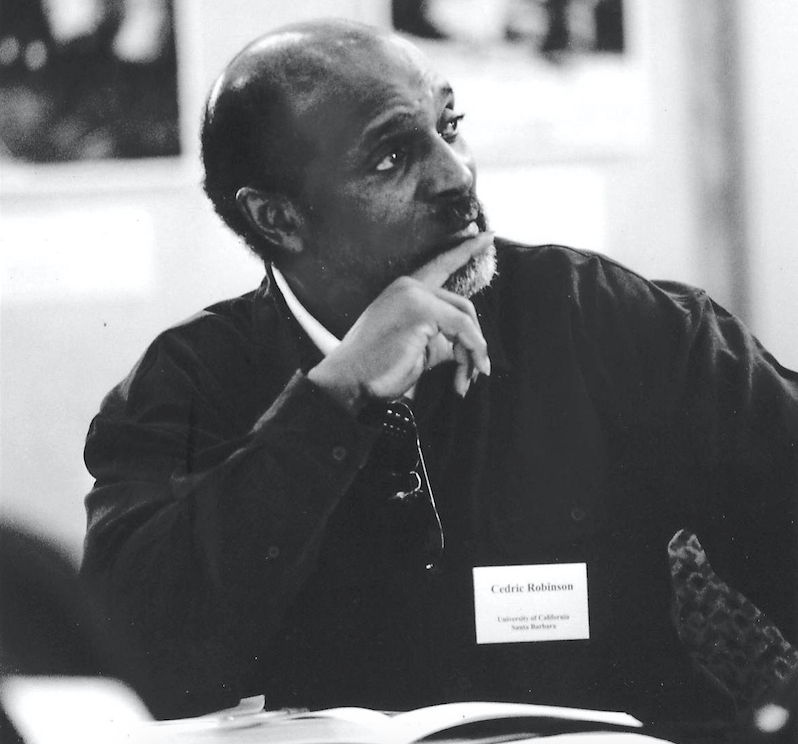Tribute in special issue of Race & Class (guest editor Darryl Thomas) October 2005.
History, philosophy, rhetoric are claimed to be the very foundations of western scholarship: from them we construct our knowledge of the world, our understanding of that knowledge and our power of conveying that understanding; they are the root of all social conceptualisation. Yet what if history, philosophy, rhetoric have themselves been stunted at birth, diminished in their capacities, crammed into spaces too small to contain them? What would that mean for the ways in which we conceive and bring about the transformation of our societies? What would it mean for our understanding of how to effect social justice? It is a question that scarcely even occurs within the academy, let alone the busy workaday world of getting and spending and laying waste our powers. It is a question forbidden by the habits of thought, the presumptions, the assumptions that render us quiescent to power. But it is the question at the heart of Cedric Robinson’s life-work. It is the question that makes that work sometimes difficult – for how do you step outside the unthought thought patterns of a life-time, of generations – it is the question that makes his work so exciting – for what liberation to see the world in a new light – it is a question of increasing urgency in an increasingly unequal, increasingly ideologically driven world.
Only, perhaps, have mystics asked such questions; but there, the return is always, except fleetingly, to the divine. Here, it is to the divine and human agency, both at once, each inhering in the other. It is a truism that history is always written by its victors, but what has not been previously understood is how notions of political order, of the arrangement of the very fabric of society, of authority andobedience, of the movement of time and progress have themselves been written to a particular script, created out of a particular and not neces- sarily inevitable pattern of socioeconomic development. ‘I have sought to expose’, stated Robinson in Terms of Order, ‘from the vantage point inherited from a people only marginally integrated into Western institutions and intellectual streams, those contradictions within Western civilisation which have been conserved at the cost of analytical coherence.’ Confronted with a chaotic, fragmented reality, the impulse of most analysts and commentators is, as Robinson shows, to impose a framework, by excluding what does not fit, in a process of self- or system-serving orderliness. Robinson, as this issue of Race & Class attempts to demonstrate, proceeds by incorporation, by recuperation of what is deemed outside the framework, whether political, sociological or philosophical, bringing the insights of each to bear on the other; celebrating the mystic and the rebel; the medieval peasant and the maroon in their attempts at turning the world upside down.
‘Thinking in order to do’ was one of Race & Class’s founding precepts, articulated in its first editorial. But thinking in order to do requires, as well, new ways of seeing not only what is to be done but also of what has been done. This is the hallmark of Robinson’s scholarship, whether in his conceptualisation, analysis and historical documentation of the Black radical tradition, as in Black Marxism; in his revelation of the wholeness of Black resistance in America (Black Movements in America); and in his restoration of a far older, wider and more varied socialism than is dreamt of in Marxist philosophy (An Anthropology of Marxism), for there is, indeed, more in heaven and earth. The lineage of black resistance in all its multifarious forms, the restoration of what was hitherto rendered invisible, is what gives his scholarship its dynamic thrust. It is Robinson who has made the understanding and tracing of that lineage crucial to all serious radical scholarship on the Black diaspora; it is Robinson who has given it a habitation and a name. It is Robinson who has inspired and influenced a community of scholars to take on that enterprise.
It has taken an unconscionably long time for the magnitude of his contribution to Black studies, to political philosophy, to history, to the study of culture, to begin to be recognised. This issue of Race & Class is one attempt to redress that – and, published in the UK’s Black History Month, to throw light on the true weight and significance of what is implied by Black History. Modest to a fault, Cedric Robinson could never, in Whitman’s words, celebrate himself and sing himself. But he could, with Whitman, say,
‘What I assume you shall assume, for every atom belonging to me, as good belongs to you’.
